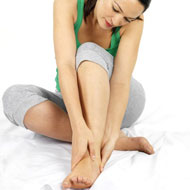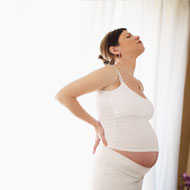- Hip Pain During Pregnancy
- Hot Flashes During Pregnancy
- Heartburn During Pregnancy
- Cold Sores During Pregnancy
- Canker Sores During Pregnancy
- Mouth Sores During Pregnancy
- Tongue Sores During Pregnancy
- Itching During Pregnancy
- IBS During Pregnancy
- Implantation During Pregnancy
- Infections During Pregnancy
- Indigestion During Pregnancy
- Increased Heart Rate During Pregnancy
- Incontinence During Pregnancy
- Hernia During Pregnancy
- Jelly Discharge During Pregnancy
- Jock Itch During Pregnancy
- Sacroiliac Joint During Pregnancy
- Kidney Pain During Pregnancy
- Kidney Failure During Pregnancy
- Kidney Changes During Pregnancy
- Knee Pain During Pregnancy
- Leg Cramps During Pregnancy
- Lower Back Pain During Pregnancy
- Lightheadedness During Pregnancy
- Labia Pain During Pregnancy
- Malnutrition During Pregnancy
- MRSA During Pregnancy
- Mild Cramping During Pregnancy
- Nausea During Pregnancy
- Ligament Pain During Pregnancy
- Muscle Spasms During Pregnancy
- Neck Pain During Pregnancy
- Night Sweats During Pregnancy
- Nerve Pain During Pregnancy
- Nipple Discharge During Pregnancy
- Nightmares During Pregnancy
- Nipples Burning During Pregnancy
- Nipples Peeling During Pregnancy
- Numb Hands During Pregnancy
- Ovary Pain During Pregnancy
- Ovarian Cyst During Pregnancy
- Ovulation During Pregnancy
- Ovarian Cancer During Pregnancy
- Overheating During Pregnancy
- Overeating During Pregnancy
- Normal Weight Gain During Pregnancy
- Joint Pain During Pregnancy
- Jaw Pain During Pregnancy
- Jaundice During Pregnancy
- Joint Stiffness During Pregnancy
- Ketones in Urine During Pregnancy
- Kidney Infection During Pregnancy
- Low Blood Pressure During Pregnancy
- Loss of Appetite During Pregnancy
- Low Iron During Pregnancy
- Losing Weight During Pregnancy
- Nipple Pain During Pregnancy
- Left Side Pain During Pregnancy
- Lactose Intolerance During Pregnancy
- Moles During Pregnancy
- Leaking & Leg Numbness During Pregnancy
- Labia Varicose Veins During Pregnancy
- Blurred Vision During Pregnancy
- Flu During Pregnancy
- HIV In Pregnancy
- Acne During Pregnancy
- Abdominal Tenderness during Pregnancy
- Swelling During Pregnancy
- Vaginal Swelling during Pregnancy
- Body Aches during Pregnancy
- Body Acne during Pregnancy
- Cervical Fluid during Pregnancy
- Dilation In Pregnancy
- Diverticulitis during pregnancy
- Bleeding During Pregnancy
- Upper abdominal pain during pregnancy
- Abdominal Pain During Pregnancy
- Back and Abdominal Pain During Pregnancy
- Migraines During Pregnancy
- Kidney Stones During Pregnancy
- Arthritis During Pregnancy
- Back Pain During Pregnancy
- Stress During Pregnancy
- Mood Swings During Pregnancy
- Insomnia During Pregnancy
- Bacterial Vaginosis Pregnancy
- Hellp Syndrome Pregnancy
- Epilepsy During Pregnancy
- Pregnancy Placental Abruption
- PTU During Pregnancy
- Posterior Pelvic Pain During Pregnancy
- Diarrhea During Early Pregnancy
- Early Pregnancy Cramping
- Lower Abdominal Pain During Pregnancy
- Menstrual Cramps Pregnancy
- Belly Sizes During Pregnancy
- Gout In Pregnancy
- Diarrhea During First Trimester
- Abdominal Pain During Pregnancy First Trimester
- Vaginal Bleeding Pregnancy Causes
- Frequent Urination During Pregnancy
- Hair Loss During Pregnancy
- Tattoo During Pregnancy
- Vaginal Bleeding During Pregnancy
- Vaginal Discharge During Pregnancy
- Snoring During Pregnancy
- Skin Discoloration During Pregnancy
- Belly Growth During Pregnancy
- Sciatica During Pregnancy
- Shortness of Breath During Pregnancy
- Saliva in Pregnancy
- Premature Rupture Of Membranes In Pregnancy
- Tingling Hands Pregnancy
- Pelvic Girdle Pain During Pregnancy
- Protruding Navel During Pregnancy
- Hemorrhoids During Pregnancy
- Forgetfulness During Pregnancy
- Flatulence During Pregnancy
- Fainting During Pregnancy
- Light-headedness During Pregnancy
- Types of Vaginal Discharge During Pregnancy
- Sciatica Pain Treatment During Pregnancy
- Pelvic Discomfort During Pregnancy
- Migraine Headache During Pregnancy
- Migraine Relief During Pregnancy
- Nosebleeds During Pregnancy
- Dysgeusia During Pregnancy
- Bloating During Pregnancy
- Chloasma During Pregnancy
- Fatigue During Pregnancy
- Pitting Edema During Pregnancy
- Mask of Pregnancy
- Spontaneous Abortion
- Causes Of Spontaneous Abortion
- Restless Leg Syndrome During Pregnancy
- Excess Saliva During Pregnancy
- Migraine Treatment During Pregnancy
- High Blood Pressure During Pregnancy
- Sore Abdominal Muscles During Pregnancy
- Symphysis Pubic Dysfunction During Pregnancy
- Treating High Blood Pressure During Pregnancy
- Prugio of Pregnancy
- Hemorrhoid Treatment Pregnancy
- Fighting Pregnancy Fatigue
- Swollen Feet Pregnancy Remedy
- Nosebleed Early Pregnancy
- Vaginal Discharge in Early Pregnancy
- Cervical Dilation Pregnancy
- Clumsiness During Pregnancy
- Dizziness in Pregnancy
- Edema During Pregnancy
- Swollen Ankles During Pregnancy
- Hard Belly During Pregnancy
- Insomnia Early Pregnancy
- Effects of Smoking During Pregnancy
- Smoking During Pregnancy Risks
- Soft Cervix During Pregnancy
- Symptoms Of Depression During Pregnancy
- Weight Gain During Pregnancy
- Depression During Pregnancy
- Alcohol Effects During Pregnancy
- Alcohol During Pregnancy
- Marijuana Smoking During Pregnancy
- Quitting Smoking During Pregnancy
- Smoking During Pregnancy
- Cervix Bleeding Pregnancy
- Closed Cervix Pregnancy
- Stress During Pregnancy Effects
- Reducing Stress During Pregnancy
- Treating Constipation During Pregnancy
- Viral Infection During Pregnancy
- Cervix During Pregnancy
- Open Cervix During Pregnancy
- Small Cervix And Pregnancy
- Swine Flu During Pregnancy
- High Cervix Pregnancy
- Cervix Size During Pregnancy
- Pregnancy Breast Cancer
- Constipation During Pregnancy
- Friable Cervix and Pregnancy
- Checking Cervix During Pregnancy
- Low Cervix During Pregnancy
- Control Weight Gain During Pregnancy
- Weight Gain During Pregnancy Week By Week
- Tooth Decay During Pregnancy
- Stress In Early Pregnancy
- Tooth Extraction During Pregnancy
- Working During Pregnancy
- Toothache During Pregnancy
- Tooth Pain During Pregnancy
- Long Cervix During Pregnancy
- Thin Cervix During Pregnancy
- Cervix Changes In Pregnancy
- Itchy Belly During Pregnancy
- Low Platelets During Pregnancy
- Pregnancy Metallic Taste
- Itchy Skin During Pregnancy
- Brown Discharge During Pregnancy
- Pregnancy Changes
- Chickenpox And Pregnancy
- Cholestasis of Pregnancy
- DVT During Pregnancy
- Fibroid Uterus During Pregnancy
- Fifth Disease during Pregnancy
- Yeast Infection during Pregnancy
- Pelvic Arthropathy During Pregnancy
- Diabetes During Pregnancy
- Cervical Cancer During Pregnancy
- Sexually Transmitted Diseases During Pregnancy
- Thyroid Disease During Pregnancy
- Urinary Tract Infections During Pregnancy
- Hyperthyroid During Pregnancy
- Hypothyroid During Pregnancy
- Placenta During Pregnancy
- Dermatoses Of Pregnancy
- Gestational Trophoblastic Diseases During Pregnancy
- Anaemia During Pregnancy
Types of Muscle Pain During Pregnancy
While pregnant, body aches and pains are extremely common. Muscle pain during pregnancy mainly occurs due to the changes and the strain the body undergoes as a result of the pregnancy. After implantation, the uterus keeps expanding in order to accommodate the growing baby.
This is bound to exert pressure on the ligaments that hold the uterus in place. This results in a mild cramping pain experienced on either side of the uterus. As a pregnancy progresses, weight gain is inevitable and this increase in body weight during pregnancy is bound to take a toll on the expectant mother.
The weight of the uterus and baby causes a change in posture, with the mother-to-be tilting backwards. This is the main cause of abdominal muscle pain during pregnancy. In addition, as the tummy grows, sleeping in a comfortable posture becomes impossible. This adds to back pain and abdominal pain during pregnancy. The weight of the baby and uterus also exert pressure on the pelvic floor muscles resulting in pelvic muscle pain during pregnancy. Pressure is also exerted on the lower back and hips as a result of the increasing uterine weight and altered posture. This could also result in groin muscle pain during pregnancy. During pregnancy, blood flow to the pelvic region increases manifold. This causes the blood vessels in the vaginal area to get engorged with blood and this is known to result in vaginal muscle pain during pregnancy.
During childbirth, the stretching of the birth canal to allow the smooth passage of the baby into the outside world also causes a strain on the vaginal muscles.
A sluggish digestive system could lead to a strain on the stomach resulting in stomach muscle pain during pregnancy. The legs bear the increasing weight and therefore, leg pain, especially calf muscle pain during pregnancy becomes unavoidable. Leg muscle pain during pregnancy could also be caused by the use of uncomfortable footwear, bad posture, poor blood circulation to the limbs, water retention as well as maintaining a single posture for long periods of time.
A warm bath helps in relaxing the muscles and minimizing pain. Trying to maintain a good posture as far as possible will be useful. To reduce the discomfort caused by these aches and pains, avoid wearing high-heeled uncomfortable footwear. While sleeping, placing a pillow between your legs will prove beneficial to some extent. Drinking plenty of water will reduce the risks of water retention. Regular non-strenuous physical exercise will also prove beneficial in reducing muscle related pain.


